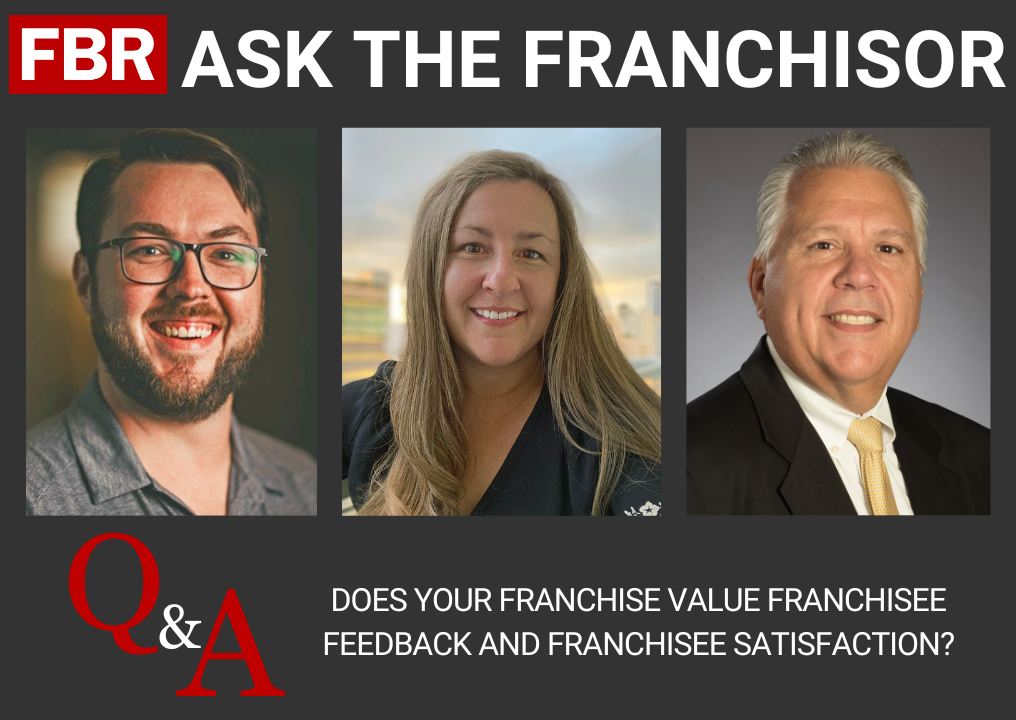Buying a franchise is a huge decision, by far one of the most important commitments you’ll ever make. And how you approach it will often determine whether your business succeeds or fails. Don’t underestimate the importance of carrying out a high-level due diligence checklist for franchise research to keep you organized and on track.
First things first: Be careful not to rush into your franchise investment. Make sure that you go into it fully prepared, otherwise you risk falling prey to some of the most common and deadly franchising mistakes. These include:
- Making uninformed decisions
- Not being a good fit for the franchise
- Underestimating the ongoing investment
- Not spending enough time with or speaking to the franchise owner or their franchisees
Thankfully, performing a thorough franchise due diligence can eliminate the nasty surprises that can turn your franchise dream into a franchise nightmare. To make things easier for you, we’ve put together the following FBR Franchise Due Diligence Checklist that will help keep you on track.
Key Criteria for Your Due Diligence Checklist for Franchise Research
Read FBR’s Franchisee Satisfaction Reviews: There is no better way to measure the true health of franchise systems than to hear from the franchise owners themselves. Franchise Business Review’s proprietary Franchisee Satisfaction Reviews are based exclusively on the honest feedback of franchise owners — the real franchise experts. The information is not intended to replace the franchise investigation process that all potential franchisees should engage in. It does, however, provide great insight about the health of brands you may be interested in. See FBR’s Top Ranked Franchise Brands.
Review the Finance Disclosure Document (FDD): The FDD is a great place to start and end your due diligence. It’s loaded with all kinds of insider information on the franchise you’re interested in buying. It will provide you with all you need to know about who the franchisor is, and the business you’ll be operating. It will also give you great insight into how the franchise is run. Franchise Business Review Founder and CEO Eric Stites recommends paying particular attention to Items 1 – 4 (which includes the background of franchisor and any legal or bankruptcy history), Items 5 – 7 (which will clearly outline the investment and associated fees), Item 9 (which covers the franchisee’s obligations in running the business), Item 19 (unit-level financial performance information), Item 20 (growth and turnover of locations), and Item 21 (corporate financial information) in the FDD. For a deeper dive into the Franchise Disclosure Document, be sure read this story.
Analyze the franchise opportunity in full: As well as carefully reviewing the FDD, FBR recommends you hire an attorney to help you perform a full analysis of the franchise opportunity. You need to pay particular attention to:
What is the size and growth potential?
Find out how soon you’ll recoup your investment: Although there are some great opportunities out there, the bottom line is you’ll still be investing a significant amount of your hard-earned cash and it’s likely that you’ll need to take out a loan to make this investment. When carrying out your franchise due diligence it’s important to make sure you’ll be able to pay back the loan on time and without a loss.
Find out the true cost of running the franchise: Costs for advertising, marketing, technology, etc. have to be factored into any franchise buying decision. There are lots of resources available to help you understand the true costs of running your small business (with SCORE being one of the best). Learn more about franchise costs.
Get to know the franchisor: The relationship you have with your franchisor will play a key part in whether your business will succeed or not. It’s important to start building this relationship at the earliest opportunity. Franchisors should be happy to answer any questions you have. Recruiting well informed franchisees is in the franchisor’s best interests, as it’s more likely that you’re going to be successful if you decide to become a franchisee based on accurate information about the opportunity. Learn more about questions to ask franchisors.
Be on the lookout for warning signs: If a franchisor is unable to answer basic questions about its franchise model or attempts to conceal information, chances are it does not have successful systems in place. This should be an early warning sign that this may not be the right time to invest in this franchise opportunity.
Beware of any secrecy: A reputable franchisor should support your decision to want to meet with other franchisees. If they try to block you from doing so, or try to hand pick who you should speak to, then proceed with caution. A complete list of all current franchisees will be included in the FDD and you should reach out to different franchisees from different regions and markets to get a broad view on the franchisee experience.
Hunt for Instances of Franchisor Litigation: A good barometer for determining the health of a franchise is to take a look at recent episodes of litigation. These should include cases already settled, as well as those that are pending. Where possible, also explore the outcome of previous litigation. Were these outcomes positive for the brand, or do they point to deeper problems? Has the franchisor acted to protect its brand and system? And the big one, are most cases of litigation between franchisees and the franchisor and are they isolated lawsuits?
Luckily, Item 3 of all Franchise Disclosure Documents list any recent litigation within a franchise company. Not all litigation is a red flag but cases should be reviewed with the franchisor so you can fully understand the circumstances from their perspective.
Consider seeking outside advice before signing on the dotted line: Even with the best due diligence in the world, entering a franchise agreement without consulting a franchise expert (i.e franchise lawyer) isn’t a wise decision for any first-time buyer. Franchise contracts can be complex and difficult to understand. The franchise agreement is lengthy and full of legal jargon, which is why FBR strongly recommends seeking legal advice.
If you follow this checklist you should be able to avoid common franchising mistakes and run your very own profitable business in whatever industry you choose.






